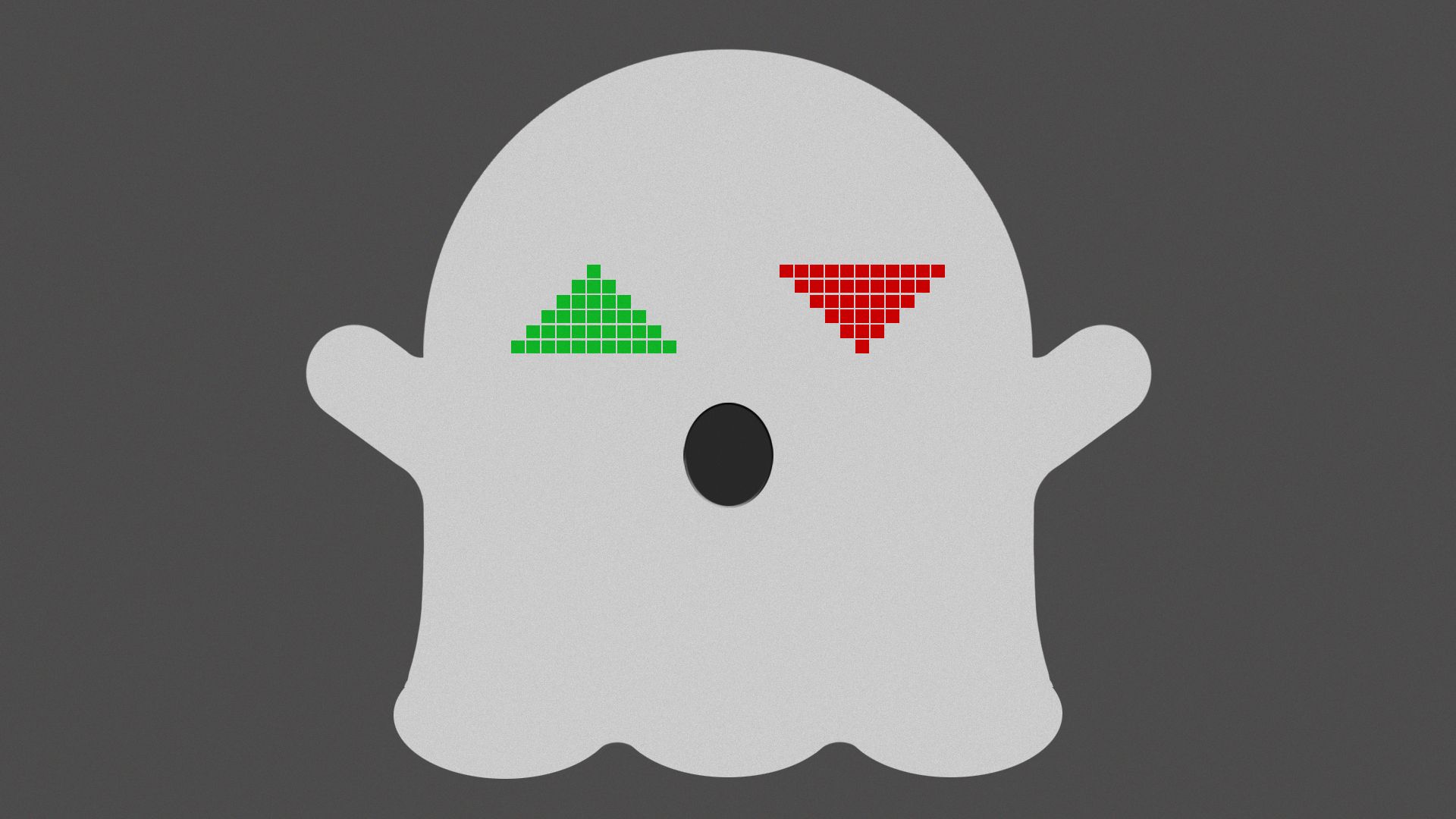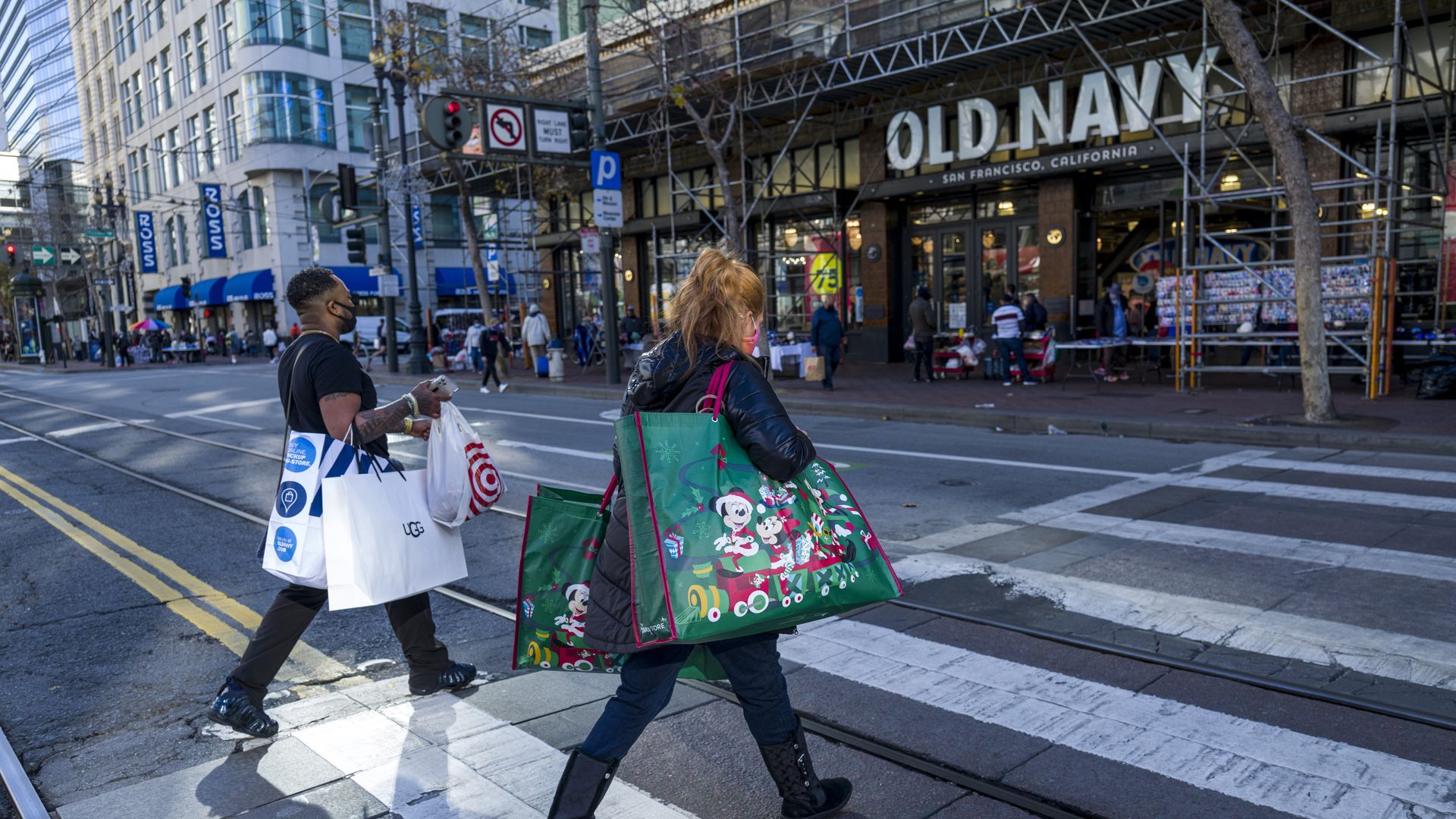| | | | | | | Presented By Anatha | | | | Axios Markets | | By Sam Ro ·Sep 14, 2021 | | Today's newsletter is 1,196 words, 4.5 minutes. Situational awareness: Apple will be unveiling new products at 1pm ET today. | | | | | | 1 big thing: A scary, but normal market phenomenon |  | | | Illustration: Rae Cook/Axios | | | | The S&P 500 is just below its record high. But most stocks in the index are actually down significantly, which has some concerned. Why it matters: This implies that the gains driving the market index to record highs are not evenly distributed. But, it's also not an unusual dynamic in the S&P's recent history. The details: According to Morgan Stanley research highlighted by Bloomberg on Friday, 56% of S&P 500 stocks were down by more than 10% from their recent highs. This compares to the S&P 500 as a whole, which is down by just 2% from its peak. What they're saying: Morgan Stanley chief U.S. equity strategist Mike Wilson predicts the weakness in the underperforming stocks will pull down the stronger stocks in a process he calls a "rolling correction," eventually leading to the S&P 500 falling 10% from its high. Yes, but: Brian Belski, BMO Capital Markets chief investment strategist, analyzed the S&P 500 since 1990 and found that it's far from unusual to see most stocks in the market down significantly even as the index makes new highs. - On average, 55% of the S&P was down more than 10% from all-time highs at the points when the index closed at new highs.
- During the period, the median stock was down an average of 12.1% from its all-time high when the S&P closed at a new high.
The big picture: Belski, who sees the S&P reaching 4,800 by year-end, acknowledges that the market performance could be "bumpy" going into the end of the year. - But his point is that there's nothing particularly unusual about seeing half of the stocks in the market down significantly even as the market averages hit all-time highs. And historically, markets have often gone on to rally to even higher highs.
State of play: Investors and experts are generally pretty bearish about the short-term outlook. - According to the New York Fed's new Survey of Consumer Expectations, respondents saw just a 39% likelihood that stocks would be higher in 12 months.
- According to Deutsche Bank's survey of market professionals, 58% of respondents said they expected the stock market to fall by 5% to 10% by the end of the year. Another 10% said the market would fall by more than 10% during the period.
The bottom line: At any given time, there are lots of winners and losers in the stock market. - The fact that the S&P 500 can actually be up despite so many of its components being down supports the case for being broadly diversified.
|     | | | | | | 2. Catch up quick | | Amazon has raised its average starting pay to $18 an hour and plans to hire another 125,000 workers. (Reuters) Intuit is buying email marketing company Mailchimp for $12 billion. (Axios) Oracle's quarterly results disappointed investors as its cloud and hardware business revenues fell short of expectations. (CNBC) |     | | | | | | 3. Exclusive: A new alliance for entrepreneurial equity |  | | | Amaya Smith, founder of Product Junkie, prepares orders for online customers. Photo: Cheriss May/Getty Images | | | | The COVID-19 pandemic has exacerbated economic inequities that women and minority workers and business owners already faced, reinforcing gender roles and widening racial disparities, Axios' Hope King writes. Driving the news: Against this backdrop, a new partnership between the National Urban League and the moderate Democratic think tank Third Way wants to level the playing field for entrepreneurs — and plans to push for federal action, Axios has learned. - The initiative, Alliance for Entrepreneurial Equity, aims to create an agenda of policies that will eventually be supported by Congress and President Biden.
- Expected to be on that agenda: equalizing access to capital, networks and markets for minority and women entrepreneurs.
Why it matters: While many grassroots efforts exist to improve entrepreneurial equity, very few are focused on effecting long-term changes at the federal level. Context: One study from Yelp from earlier this year found that women-owned businesses, Latino-owned businesses and Black-owned businesses were more likely to close and reopen two or more times, compared to other businesses. - More than half (51%) of Black-owned small businesses have less than three months' cash, compared to 44% of all small business owners, according to a recent Goldman Sachs survey.
What they're saying: Throughout the pandemic, "we've seen the power of Congress and the federal government in [bringing a] historic amount of change to small businesses," Imani Augustus, director of AEE, tells Axios. The big picture: From government funding to reconciliation, the talk on Capitol Hill this year has been about rebuilding the economy — and specifically, how to create a post-COVID economy that is "more inclusive and equitable," adds Gabe Horwitz, senior vice president of the economic program at Third Way. The bottom line: "We need far more small businesses, period," Horwitz says. |     | | | | | | A message from Anatha | | Universal Basic Income. Now available for download | | |  | | | | What if UBI could pay for itself? What this means: ANATHA is a new kind of cryptocurrency that connects people to real value. Our goal? A regenerative income that can lift millions out of poverty and strengthen our economies as a whole. Learn more. | | | | | | 4. Record inflation worries |  Data: New York Fed; Chart: Axios Visuals Americans expect stuff to get a lot pricier. Why it matters: Even though inflation may not actually rise to expected levels, the expectations alone can affect behavior. - "Some research shows when consumers expect higher inflation they pull back on spending," MacroPolicy Perspectives founder Julia Coronado said.
By the numbers: According to the New York Fed's August Survey of Consumer Expectations, respondents see the rate of inflation rising to 5.2% a year from now, up from 4.9% in last month's survey. - Three years from now, the inflation rate is expected to be 4.0%, up from 3.7% last month.
- Both figures represent the highest readings since the survey began in 2013.
State of play: Business anecdotes continue to confirm that inflation remains a challenge. - "Unfortunately, inflation is higher than we even thought in the third quarter," 3M CFO Monish Patolawala said at a Morgan Stanley conference on Monday. "Despite taking price up… we are seeing inflation outstrip price."
What to watch: The August Consumer Price Index report, which will be published at 8:30 ET this morning, will give a fresh update on what inflation looks like today. |     | | |  | | | | If you like this newsletter, your friends may, too! Refer your friends and get free Axios swag when they sign up. | | | | | | | | 5. Report: Bustling holiday shopping season ahead |  | | | Shoppers in San Francisco. Photo: David Paul Morris/Getty Images | | | | This holiday season, e-commerce sales in the U.S. will likely be 50% higher than 2019 levels, Hope writes. - Brick and mortar retailers' sales will also be up over the same period, but by just 9%, estimates a new Deloitte report released this morning.
Why it matters: The pandemic drove businesses and consumers online — habits that are sticking around for the long term. By the numbers: Retail sales in the U.S. are expected to reach about $1.3 trillion for the period from November to January, Deloitte says. - The firm estimates that e-commerce sales specifically will reach between $210 billion and $218 billion.
- For context, total holiday sales last year grew 5.8% from 2019 to $1.2 trillion — with e-commerce specifically growing 34.8% to $189 billion.
The strong sales forecast comes amid "already elevated retail sales" even as disposable income is expected to remain flat, Deloitte says. - The National Retail Federation raised its annual outlook earlier this year after observing that consumer spending has been "more resilient" than expected.
What they're saying: During a Goldman Sachs presentation last week, Walmart CEO Doug McMillon also said he expects consumer demand to stay the same or rise this year. - "If I had to take over or under, I'll take a little over," McMillon said. "I think customers, families want to celebrate Christmas. They want to have a Thanksgiving, and if this situation with the virus enables it or maybe even if it doesn't, we're going to see strong demand through the rest of this year."
|     | | | | | | A message from Anatha | | Anatha is crypto for the 100% | | |  | | | | ANATHA is a new kind of cryptocurrency built on the radical belief that economic systems should serve everyone. We decentralize the flow of money, connecting people to real value on a platform that is 100% accessible to 100% of everybody. Learn more. | | |  | | It'll help you deliver employee communications more effectively. | | | | | | Axios thanks our partners for supporting our newsletters. If you're interested in advertising, learn more here.
Sponsorship has no influence on editorial content. Axios, 3100 Clarendon Blvd, Suite 1300, Arlington VA 22201 | | | You received this email because you signed up for newsletters from Axios.
Change your preferences or unsubscribe here. | | | Was this email forwarded to you?
Sign up now to get Axios in your inbox. | | | | Follow Axios on social media:    | | | | | |












No comments:
Post a Comment